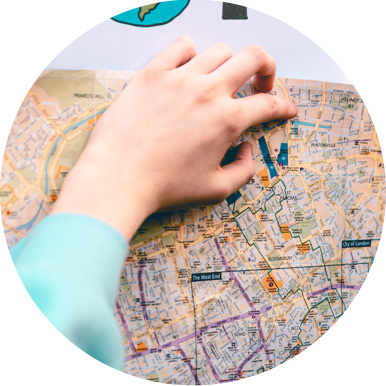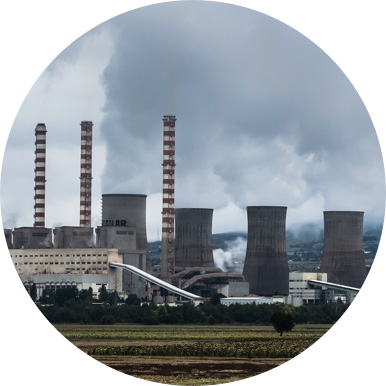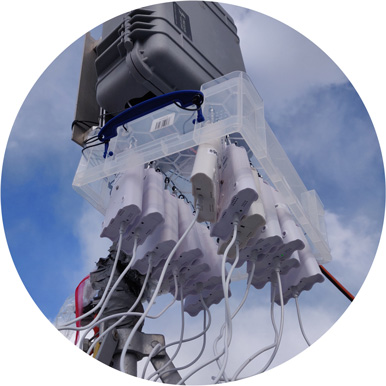Your cart is empty.
User stories
The AirCasting platform empowers community-based organizations, educators, academics, regulators, city managers, and community scientists to map air pollution and organize for clean air.
Educators

Bringing AirBeam and AirCasting to your classroom is a proven way of sparking student interest in environmental science and driving civic engagement. Students gather, analyze, and share data with the larger AirCasting community, applying mapping technology to solve real-world environmental problems via community-oriented research projects.
Community Scientists

Our low (and no) cost technologies make the platform an attractive option for all community scientists. Whether you need data for a specific advocacy campaign, or just want to limit your personal pollution exposures, the AirBeam’s hyperlocal measurements can help you visualize what you’re breathing, add credibility to your cause, and guide better daily decisions.
Researchers

The credibility of your data is important and control of your data is paramount. The proven accuracy of the AirBeam’s hyperlocal measurements will enable you to create high-resolution pollution surfaces. Configure the AirBeam to feed data directly to your database or just beam data to the AirCasting platform, where it can easily be visualized, shared, and exported.
Activists & Non-profits

Enhancing quality of life in your community is essential and our platform, when in your hands, becomes a powerful tool for clean air advocacy. Whether you want to curtail local polluters or campaign for better quality of life, the AirBeam and AirCasting platform bring visibility to the quality of the air you and your community are breathing.
What Our Community
is Saying
-
Citizen Scientists
Sixth Street Community Center
When the opportunity arose to apply for an EPA Environmental Justice Problem Solving grant, Sixth Street Community Center saw a chance to tackle one of the neighborhood’s most pressing issues—air quality—in an area pocked with pollution sources, like the fossil fuel powered East River Power Station and the FDR Drive.
Read more -
Citizen Scientists
SciStarter
Libraries have always been community hubs—accessible, trusted, and deeply connected to the people they serve. SciStarter recognized that if people could borrow scientific tools like the AirBeam the same way they borrow books, it could remove one of the biggest obstacles to community participation in science.
Read more -
Citizen Scientists
CAPA Strategies
CAPA Strategies and the City of Bloomington, Indiana used AirBeams and temperature sensors to capture neighborhood-level pollution and heat data while also analyzing how climate change could affect future heat risks.
Read more -
Citizen Scientists
ConBici
ConBici, the National Coordinating Body for the Defense of Bicycles, and Clean Cities launched the Cycling with Clean Air initiative to answer a critical question: “What’s in the air that cyclists breathe”?
Read more -
Citizen Scientists
Groundwork Hudson Valley
Through workshops, educational materials, and grassroots campaigns, Groundwork Hudson Valley is breaking down a complex issue and demonstrating the power of community science to drive change.
Read more -
Citizen Scientists
UrbanBetter
Through the Cityzens for Clean Air Campaign, UrbanBetter organized youth voices to build awareness and advocacy about the issue of air pollution in African cities.
Read more -
Researchers
Claiborne Corridor Project
LSU Health New Orleans, with support from the US Environmental Protection Agency, is using the AirBeam to conduct research to better understand environmental hazards, exposures, and related health outcomes in the Claiborne Corridor. Their findings have been captured in the Claiborne Corridor Study.
Read more -
Citizen Scientists
Global Alliance for Incinerator Alternatives (GAIA)
Community members were tired of breathing in toxic air while their governments failed to act...so GAIA members took matters into their own hands. The organization distributed AirBeams to volunteers near active incinerators, translating the data into local languages and pairing it with powerful visuals of pollution to tell a story that couldn’t be ignored.
Read more -
Researchers
USC Environmental Health Centers
The Community Engagement Program on Health and the Environment (CEPHE) at USC Environmental Health Centers (USCEHC) uses a variety of low-cost air quality instruments and data platforms, including the AirBeam + AirCasting platform, to run participatory air monitoring programs that engage community members around air quality issues where they live, work, and play.
Read more -
Citizen Scientists
Airparif
Founded in 1979, Airparif is a French non-profit organization vested by the Ministry of Environment to monitor air quality, forecast pollution episodes, educate the public on the environment, and assess the effectiveness of air pollution mitigation measures in the Paris metropolitan region.
Read more -
Researchers
Barry Commoner Center for Health & the Environment
The Barry Commoner Center for Health & the Environment (BCCHE) is an environmental and occupational health research institute at Queens College, City University of New York. The mission of the Center is to identify and rectify environmental and occupational threats to human health.
Read more -
Activists & Non-profits
CleanAIRE NC
CleanAIRE NC, a Charlotte-based non-profit, works to ensure cleaner air quality for all North Carolinians through education and advocacy and by working with their partners to reduce sources of pollution. For the past two years, CleanAIRE NC has been distributing mobile and stationary air quality instruments and providing hands-on training to Charlotte residents as part of their AirKeepers program.
Read more -
Activists & Non-profits
Environmental Law & Policy Center
Chicago residents are hospitalized for asthma at twice the national average. Making matters worse, the rate of asthma hospitalizations is even higher in many of Chicago’s predominately working-class African-American and Latinx neighborhoods.
Read more -
Educators
Queensbridge Tech Lab
The Queensbridge Tech Lab (QTL) is a branch of the Queens Public Library located in the Queensbridge Houses, the largest public housing development in North America. QTL offers workshops on and open access to a variety of digital and analog tools, from 3D printing and graphic design to sewing and robotics.
Read more
 Get AirBeam
Get AirBeam 












